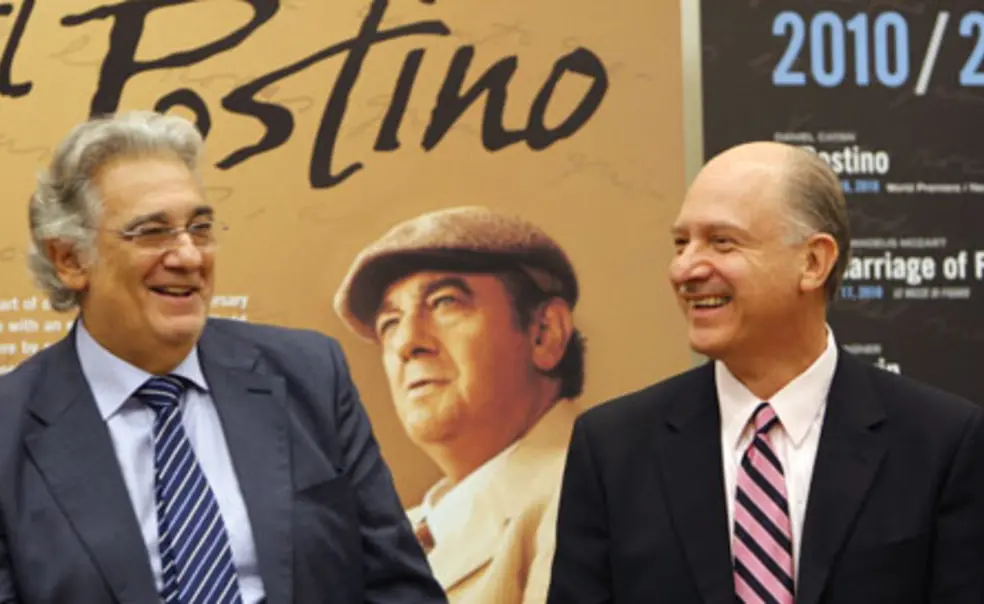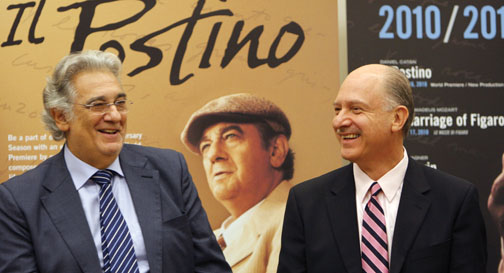Music of poetry and love
Opera composer Daniel Catán *77’s latest work is based on the Italian film Il Postino
Sixteen years ago, when composer Daniel Catán *77 saw the film Il Postino, about a postman on a small Italian island who delivers mail to the exiled Chilean poet Pablo Neruda, Catán identified with the young postman, who learns about the power of poetry in attracting the heart of a local beauty.
Catán knew then that the film could make a great opera, but he was too busy working on another one. When he came back to Il Postino about five years ago to compose an opera and write the libretto, he identified more with Neruda than with the postman, Mario, because he had aged and, like Neruda, had become a mentor to younger artists. “I could understand much better the role that Neruda had to play in the life of Mario,” says Catán, 61.
Il Postino, Catán’s fourth opera, had its world premiere in September at the Los Angeles Opera. The final four performances sold out, and the Los Angeles Times called Il Postino “the most successful new opera the [Los Angeles Opera] has mounted since its founding 25 years ago.” Plácido Domingo played Neruda, and Charles Castronovo played Mario. The work will travel to Vienna in December and to Paris next summer.
Catán is known for his lyrical, romantic style and has been compared to Claude Debussy, Richard Strauss, and Giacomo Puccini. Catán’s 1996 Florencia en el Amazonas, loosely based on Gabriel García Márquez’s novel Love in the Time of Cholera, was the first Spanish-language opera commissioned by a major American company.
All of his operas, says Catán, center on a basic theme: the place that art and love occupy in our lives. “Love is the most powerful motivation that we have to change, to become something. And art is one of the most powerful tools that we have to promote that change.” In Il Postino, he says, these two ideas come together.
This was the first time Catán wrote the libretto for his opera, creating his own adaptation of the source material — the 1994 film directed by Michael Radford, Antonio Skármeta’s 1985 novel and film set in revolution-era Chile, and Neruda’s poetry.
The 1994 film version of Il Postino focuses on Mario’s personal story — the young postman who entices a beautiful woman through poetry and sees in Neruda the man he wants to become. Catán’s version of the story builds up the Neruda character so he’s not just a vehicle for Mario’s transformation, but has his own journey. Catán restores, in a general way, the political backdrop of Neruda’s defense of human rights as portrayed in the Chilean film and novel.
In all his operas, says Catán, his characters undergo “deep internal transformations.” In Il Postino, Mario “not only gets the girl,” he says, “but he becomes socially aware. He becomes a citizen of the world. He becomes fully human.” Neruda realizes that his poetry — like political activism — can indeed change the world: It’s not “simply the exercise of something in an ivory tower,” Catán says. The composer also develops the theme of Neruda as mentor to the pupil Mario and has Neruda coming to terms with his own lost youth.
Catán — who grew up in Mexico, moved to Great Britain at age 13,
and earned his doctorate in music at Princeton, where he studied with Milton Babbitt *92 — composes operas that are sung in Spanish. Few operas are written in that language, says Catán, who wants to help build a tradition of operas that reflect Spanish and Latin American culture.
Meet John Doe













No responses yet